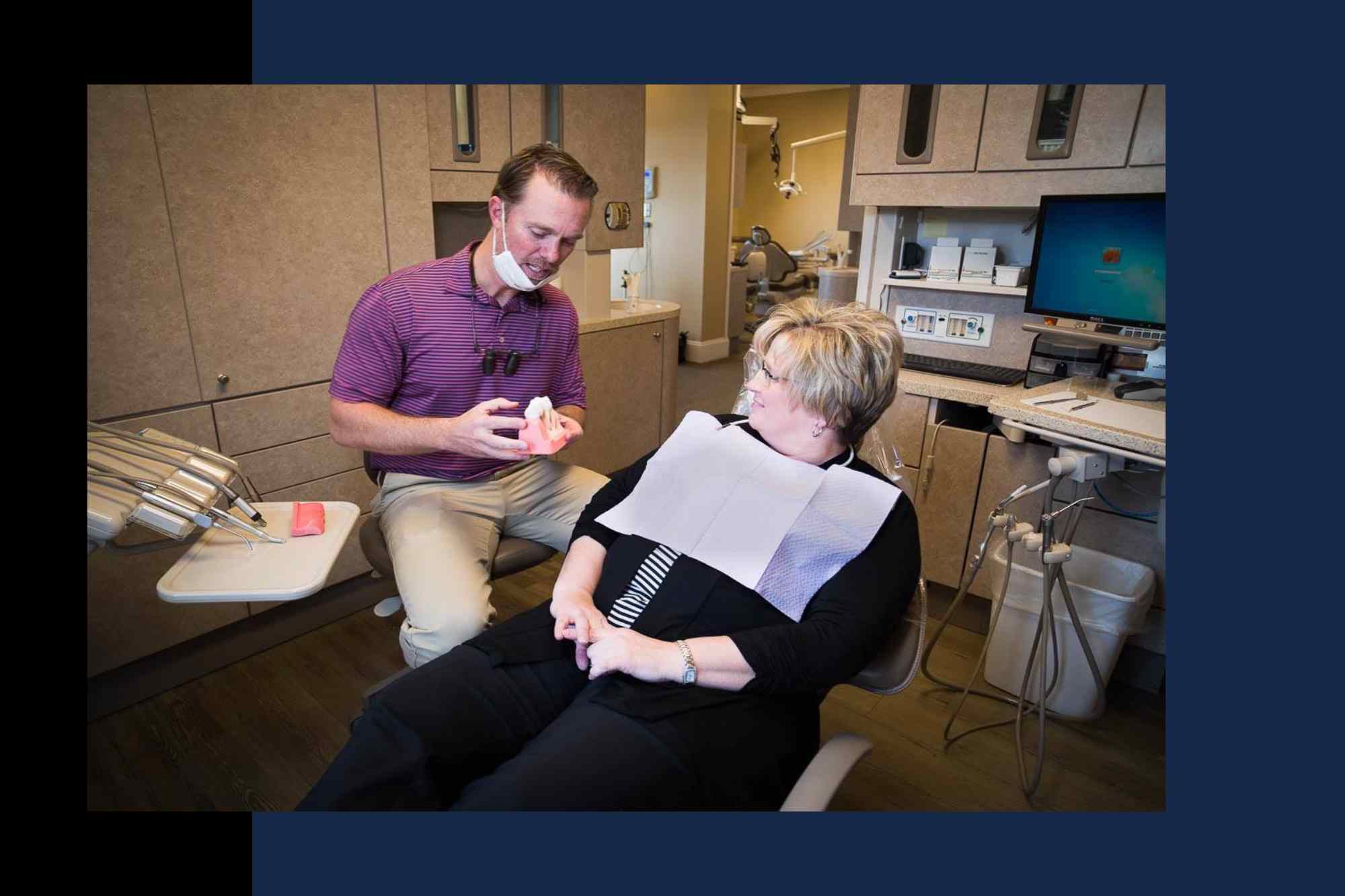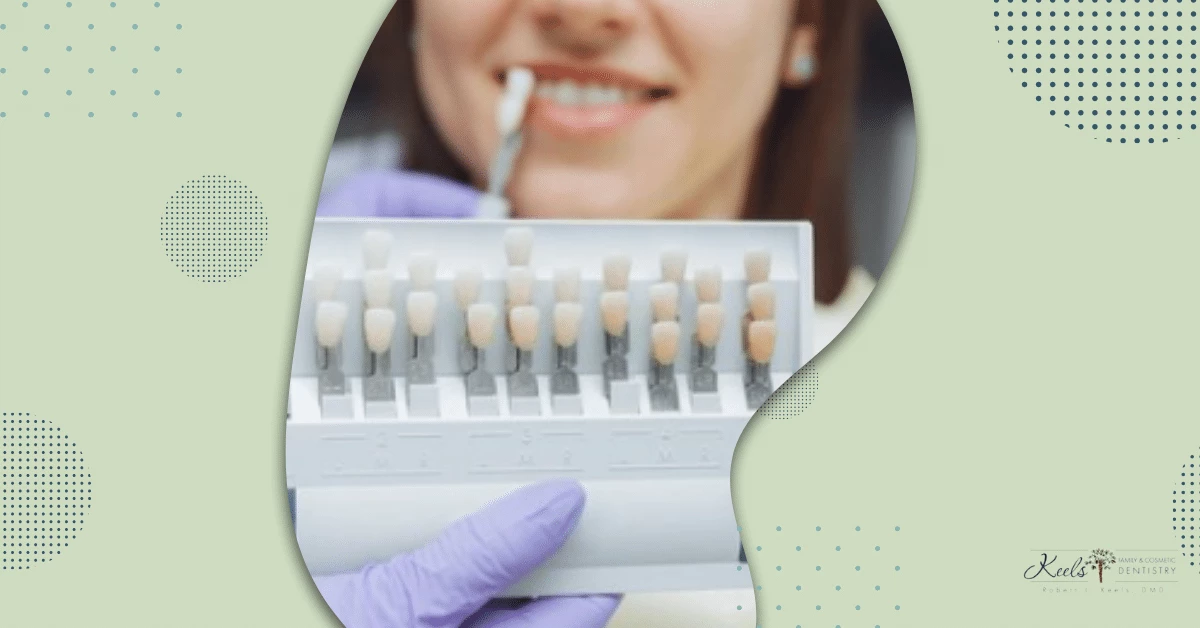Chipped Tooth Repair Dentist
You’ve completed your cold beverage and are down to the ice. You begin munching away on the ice cubes when suddenly, CRACK! That little flake of ice you chewed on is a piece of tooth!
Chipped teeth are prevalent in both adults and children. A chipped tooth is one in which a very small bit or portion of the tooth comes off, usually at the tooth’s edge. If the bit that has broken off is very small, you may not feel pain right away or even detect if the tooth has been chipped. There are numerous causes and scenarios in which your tooth can get chipped. For example, a chipped tooth might happen by crunching on hard candy or ice.
The enamel is the mineralized covering of the teeth and is the most mineralized and toughest tissue in the body; yet, its endurance and strength are limited. A chipped tooth can be caused by being hit in the face or falling and landing facedown. This is especially true if the tooth has already had some decay. Don’t be alarmed if you find a fragment of your tooth in your mouth one day. The dentist can use a variety of techniques to repair a chipped tooth.
A minor chip in a tooth may appear insignificant, especially if it is a molar that no one can see. More minor chips are usually not a concern unless they are sharp, in which case they could cut your mouth. However, if your chip is large enough, it may cause more severe issues like discomfort, hot/cold sensitivity, foul breath, swollen glands, and even infected roots.
A chipped tooth’s sharp edges can injure your cheek, tongue, and gums, causing them to bleed. If the chipped tooth is a result of an injury, you may also have other injuries like a concussion, cracked skull, or broken jaw. In these cases, it is best to seek medical attention immediately.
When is it necessary to fix a chipped tooth?
When you chip a tooth, you should always go to the dentist. Minor chipping usually does not necessitate a substantial repair. Often, we here at Keels Family & Cosmetic Dentistry can just file the chipped tooth or fill it with a dermal adhesive to make it look normal again. However, larger fissures may necessitate more comprehensive dental work.
If a chip is large enough, it might injure the pulp inside the tooth. The dental pulp is the live tissue, blood vessels, nerves, and connective tissue that makes up the center of your tooth. Damage to the pulp can be very painful and, if left untreated, can lead to infection. If this occurs, you may require more extensive dental work.

How Does Your Dentist Repair a Chipped Tooth?
Keels Family & Cosmetic Dentistry may just need to smooth the rough edges of minor chips or fill them with a dermal filling that matches your teeth. To protect the tooth from potential infections, severe chips that do not harm the root or pulp may necessitate the use of a cap or crown. If the pulp or root of the tooth is injured, a root canal may be required before a crown or cap is placed over the tooth. Your Keels Family & Cosmetic Dentistry team will work with you to ensure that your smile is as healthy and beautiful as possible by giving you these options.
Dental Crown or Cap to Fix a Chipped Tooth
If a substantial chunk of the tooth is broken and there is disease in the tooth, the dentist will file away some of the remaining teeth and cover and protect the tooth with a crown, which is a tooth-shaped cap. This will also improve the appearance of the tooth. Permanent crowns can be made from various materials, including metal, all-ceramic, all-resin, or porcelain fused to metal. Each form of crown has advantages. Crowns made entirely of metal are the strongest. Resin and porcelain crowns are the most similar to the natural tooth in appearance.

Dental Bonding or Filling to Fix a Chipped Tooth
If only a little portion of the tooth enamel has been chipped away, the dentist can repair it with a filling. If your front tooth has been chipped and is visible when you talk or smile, a bonding surgery using tooth-colored composite resin is employed.
Bonding is a straightforward operation we use that usually does not require a local anesthetic. The first step in bonding a chipped tooth is to roughen the surface of the tooth with a gel or liquid to allow the bonding material to adhere better. The tooth is then coated with an adhesive substance, followed by a tooth-colored resin. The dentist then shapes the bonding substance to resemble a real tooth. Finally, ultraviolet radiation is utilized to solidify the bonding material on the tooth.

Dental Veneers to Fix a Chipped Tooth
A dental veneer is a thin layer of a tooth-colored resin or porcelain composite material that surrounds the tooth. A veneer completely covers the front of the tooth. It has a thicker portion that replaces the shattered tooth component. If the front tooth has been chipped, a dental veneer can be utilized to restore its appearance to wholeness and health.
We remove around 0.3 to 1.2 mm of enamel from the tooth’s surface to prepare it for veneer placement. The impression of the tooth is then obtained and submitted to a dental lab for fabrication of the veneer. After the veneer is complete, your Keels Family & Cosmetic Dentistry dentist roughens the surface of the tooth with a gel or liquid. After that, a special cement is applied to the veneer and placed on the prepared tooth. After the veneer has been appropriately installed, a special light is used to activate the chemicals in the cement, causing it to set swiftly.

Why Choose Keels Family & Cosmetic Dentistry?
Make An Appointment
At Keels Family & Cosmetic Dentistry, we understand that people choose our practice for a multitude of reasons. Our prime location offers convenience to our valued patients, making it easy to schedule appointments and prioritize their oral health. The trust and satisfaction of our patients, who often refer friends and family, have solidified our reputation as a professional and caring dental office within our community. Our comprehensive services range from cosmetic dentistry to dental care for the entire family, ensuring that we meet the unique needs of every member. We work with various dental insurance plans to make quality care accessible. With flexible scheduling, a warm and welcoming atmosphere, state-of-the-art technology, and a commitment to patient education, we aim to provide not just dental services but also a comfortable and personalized experience. At Keels Family & Cosmetic Dentistry, we prioritize the health and well-being of our patients above all else, fostering a strong personal connection with each individual who walks through our doors.



